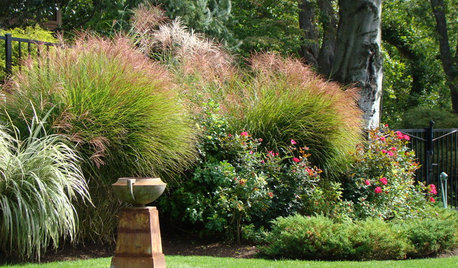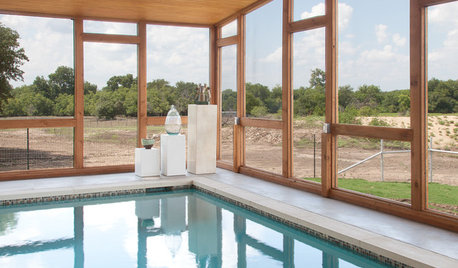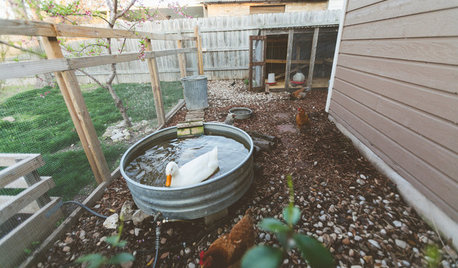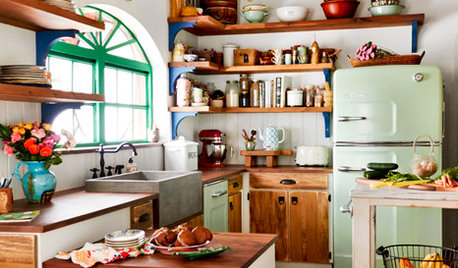Vermicompost animal types...
emyers
17 years ago
Related Stories

LANDSCAPE DESIGNThe 7 Best Plant Types for Creating Privacy and How to Use Them
Follow these tips for using different kinds of plants as living privacy screens
Full Story
DECLUTTERING10 Types of Clutter to Toss Today
Clear the decks and give the heave-ho to these unneeded items
Full Story
HOW TO PHOTOGRAPH YOUR HOUSEMeet 4 Basic Types of Home Photographers
Capture the details of your home's architecture or a fleeting moment — just don't expect both from the same photographer
Full Story
KITCHEN DESIGNChoosing a Backsplash: What's Your Personality Type?
10 Tile Styles That Say a Little Something About You
Full Story
The Animal Statue: Pets Without Responsibilities
No time or room for a pet yet? Get your fix with some animal energy that won't scratch the furniture
Full Story
DECORATING GUIDESAnimal Prints: A Love-It-or-Hate-It Look
Some embrace faux furs and animal-print upholstery as classic looks. Others see them as a tacky throwback
Full Story
HOUZZ TOURSMy Houzz: An Animal Lover's Texas Sanctuary
Dogs, cats and horses enjoy an idyllic temporary refuge here, but the eco-minded home has a permanent place in its owner's heart
Full Story
PETSDealing With Pet Messes: An Animal Lover's Story
Cat and dog hair, tracked-in mud, scratched floors ... see how one pet guardian learned to cope and to focus on the love
Full Story
FARM YOUR YARDMy Houzz: An Urban Farm and Animal Sanctuary in Austin
Four dogs, four chickens, a duck and a kitten find refuge in a photographer’s updated home
Full Story
HOUZZ TV FAVORITESHouzz TV: Animals, Love and Color on a Florida Farm
Farm-fresh style is just right for this family of 6 — and their horses, dogs, cats, chickens, zebus, birds and pig
Full Story


squeeze
trancegemini_wa
Related Discussions
HELP!!! Animal(s) thinks they're at an all you can eat buffet
Q
Vermicomposting & Animal Dung
Q
Medium scale vermicomposting advice
Q
Soil; Vermicompost and Vermicasting?
Q
emyersOriginal Author
trancegemini_wa
squeeze
emyersOriginal Author
emyersOriginal Author
plantnfool
timshaw
timshaw
Top Green